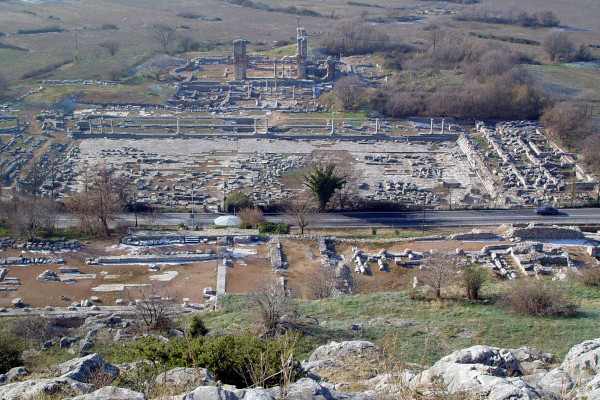The city of Philippi was established as a Thasian colony between 360 BC and 359 BC. Its original name was Crenides (Greek: Κρηνίδες "fountains") while it was renamed by the king of Macedonia Philip ll (father of Alexander the Great) in 356 BC. The city flourished for many centuries until it was abandoned during the 14th century after the Ottoman conquest.
The archeological site is located 19 km outside the city of Kavala and its significance was recognized in worldwide level since in 2016 it was classified as a UNESCO World Heritage Site.
It was the most important city of East Macedonia during the Hellenistic the Roman and the Early Christian period. The fertile land around the city and the existing gold mines were making the city rich, while the fact that is was situated at Egnatia road that was linking Rome and Constantinople was giving to the city the status of a trade center.
Philippi has also a special connection with Christianity since it is the first city in the European continent that Christianity was preached by Apostle Paul in 50 AD. Today the visitor has the opportunity to see a number of Early Christian churches and admire the interesting frescoes which decorated them.
